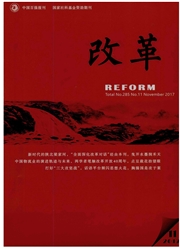

 中文摘要:
中文摘要:
以Karasek的工作要求一控制模型为分析框架,通过对三家企业219名员工的问卷调查,探讨工作属性与员工心理健康的关系。研究结果显示,工作属性中的工作要求、工作控制均与心理健康显著相关;在控制了人口统计学变量之后,二者所解释的心理健康方差变异量为7%;工作要求和工作控制的交互效应也能够有效预测心理健康。这些结果提示:工作要求过高和工作控制缺乏都会导致员工的心理健康下降,员工的心理健康是工作要求和工作控制共同作用的结果。
 英文摘要:
英文摘要:
Objective: To explore the relationship between work characteristics and employees' mental health. Methods: A survey was made on 219 subjects from three companies. Results: Hierarchical regression indicated that both job demands and job control were powerful predictors of mental health beyond the demographic variables, and 7% variance of mental health was explained by job demands-control. Conclusion: High job demands or lacking of job control predicted lower mental health of employees. Employees' mental health was not singly predicted either by job demands or by lacking of job control, but by the interaction of the two factors.
 同期刊论文项目
同期刊论文项目
 同项目期刊论文
同项目期刊论文
 期刊信息
期刊信息
